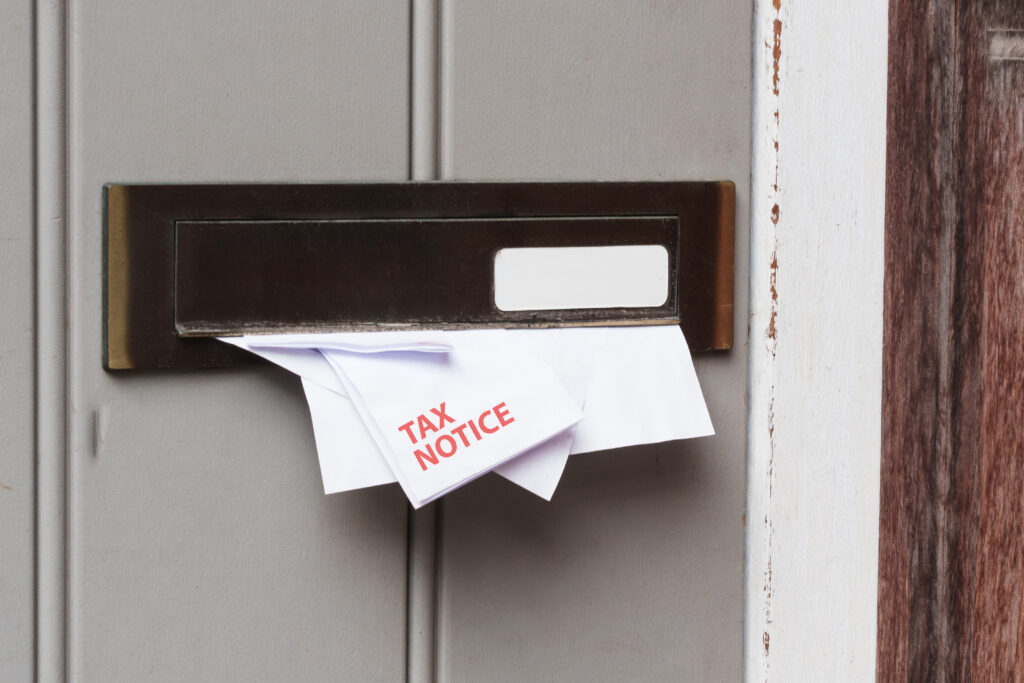

Receiving a letter from the IRS can feel stressful. You may wonder what the notice means and what you should do next.
Sometimes, the notice is about a missing form or an amount the IRS believes you owe. Other times, it can point to more serious problems.
If you have received an IRS notice and are not sure how to respond, our New York tax attorneys at Thorgood Law Firm can review your situation, explain your rights, and help you reply properly. Do not wait too long to reach out. IRS problems do not get better with time. If you need immediate legal counsel, call today for a free initial consultation.
Why Is the IRS Sending a Notice?
The IRS sends notices for many reasons. Sometimes, the IRS wants to correct a figure on your tax return or ask for extra information. Other times, it may want to remind you about a payment you owe. There are also cases where the IRS questions certain deductions or claims on your return.
Receiving a notice does not always mean you did something wrong. It might be that the IRS needs a simple fix or a missing piece of data. Still, ignoring it can cause more trouble later.
If you are unsure why the IRS contacted you, look closely at the letter. It often has a code number and explains the reason in simple terms. Sometimes, it notes a math error, a missing signature, or a difference between what you reported and what your employer or bank reported. In some cases, the letter might say that the IRS plans to adjust your taxes.
Understanding the reason for the notice helps you decide what to do next. Our New York tax attorneys at Thorgood Law Firm can discuss the meaning of your notice and guide you on how to respond.
What if You Are Unsure What the Notice Means?
Reading an IRS notice can sometimes leave you confused. The language may feel formal, and you might not understand every detail.
Our New York tax attorneys at Thorgood Law Firm often help clients read and understand IRS notices. When you know what the IRS wants, you can plan your response and avoid unnecessary delays.
Confusion can lead to panic, which may cause you to ignore the notice. That is usually not a good idea. Ignoring an IRS correspondence is almost always the wrong thing to do. If the IRS does not hear from you, it might move forward with collection actions, add penalties, or even place liens on your property.
What if You Cannot Afford to Pay Right Now?
If the IRS notice says you owe money and you cannot pay the full amount at once, you still have options. You might qualify for a payment agreement, known as an installment arrangement. This allows you to pay over time. The IRS may also consider whether you are eligible for other forms of relief. But you must reach out to them. Ignoring the bill will not make it go away.
Before agreeing to any payment plan, it can help to talk to a lawyer who understands tax law. Our New York tax attorneys at Thorgood Law Firm can review your finances and help you choose a payment plan that makes sense.
Sometimes, the IRS might be willing to lower penalties or let you pay a smaller amount. But you need to know how to ask. Our lawyers can help you explain your circumstances in the right way and make sure you understand the terms before you sign any agreement.
What if the IRS Notice Involves an Audit?
An IRS notice might say that your tax return is under review, which can mean an audit. If the IRS audits your return, they may ask for proof of certain deductions, credits, or income. This process can be time-consuming and stressful, especially if you are not sure what records to provide. Our irs lawyer nyc can guide you through an audit, making sure you understand what the IRS wants and how to respond.
If the IRS asks for items you do not have, our lawyers can help you gather what you need or explain why the records are missing. The lawyer can also attend meetings or communicate with the IRS on your behalf. This support can help you avoid errors that might lead to bigger problems. Our New York tax attorneys at Thorgood Law Firm can help you handle audits and other complex matters the IRS might raise.
Will Ignoring the Notice Make It Go Away?
Ignoring the IRS is never a good idea. The IRS will assume that you either agree with what they said or that you do not plan to resolve the issue. This can lead to more serious actions, such as filing a lien on your property, sending levies to your bank, or even garnishing your wages.
Responding to the notice is the first step in preventing these actions. Even if you cannot pay the entire amount right now, showing that you are willing to cooperate can help you avoid more severe consequences.
If you feel tempted to ignore the notice because it seems too hard to deal with, remember that help is available. Our New York tax attorneys at Thorgood Law Firm can address the matter and help you move forward. Taking action now often leads to better outcomes than waiting until the IRS uses stronger collection methods.
How Do You Keep Good Records to Prevent Future Issues?
Keeping clean tax records can help you avoid trouble with the IRS. While you cannot change the past, you can make sure that going forward, you save all your tax-related documents. This includes W-2s, 1099s, bank statements, receipts for deductions, and any letters from the IRS. When you keep these records in a safe place, it becomes easier to respond if the IRS sends you another notice in the future.
What if You Disagree With the IRS Notice?
If you believe the IRS is wrong, you have the right to challenge the notice. The first step is to send a clear letter explaining why you think the IRS made a mistake. Include documents that back up your claim. If the IRS still believes they are correct, you may have the option to appeal. The appeals process is your chance to make your case before an independent officer who was not involved in the original decision.
What Happens If You Do Nothing?
If you do not reply to the IRS notice, and the IRS believes you owe money, it may try to collect without your input. The IRS can place liens on your home or car, garnish your wages, or even seize your bank accounts. These actions can make your life more difficult. It can also hurt your credit and make it harder to sell your property.
By responding to the IRS notice as soon as possible, you have a chance to work out a solution before these actions occur. The IRS usually follows a set process and gives you a chance to reply before taking serious steps. Using that chance wisely can save you a lot of trouble. Even if you cannot pay right away, showing the IRS that you want to fix the problem may lead them to give you more time or consider other options.
Contact Our New York Tax Attorneys at Thorgood Law Firm
If you are ready to face the IRS notice with confidence, call us at (212) 490-0704 or (212) 202-3879. Let our New York tax attorneys at Thorgood Law Firm help you understand your IRS notice and respond in a way that protects your rights and your financial well-being.
You do not have to handle this alone. Contact us today for a free consultation and take the first step toward a better resolution.






